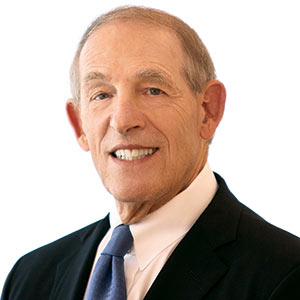Effective leaders must be optimists, pragmatists and skeptics all wrapped into one. They possess the same skills as fearless circus tightrope walkers who traverse a thin wire suspended high above the floor of the big top without letting the audience see them sweat.
Experienced executives, like highwire-daredevils, have learned that accomplishing major goals requires balancing skills and having a safety net just in case they falter. Even if they are not optimists, CEOs don’t launch a major effort thinking it will fail. Optimists mitigate failure by being pragmatists, too. They follow the time-tested adage, “What can go wrong likely will go wrong,” especially without a talented and empowered team backed by protocols of checks and balances.
Even with all of the right ingredients, sometimes things are out of their control because of exogenous factors. A good example is the COVID-19 pandemic, which no one saw coming or imagined the ramifications, which brought everything to a screeching halt. Pragmatist leaders in short order stopped most deferrable major projects until there was clarity to assess the risks/rewards of moving forward. To do otherwise would have been naively optimistic.
The skepticism in a leader also demands that he or she learn to deal with doubt without becoming paralyzed. To avoid this peril, it’s prudent to “first verify and then trust,” in reverse order of the more familiar President Ronald Reagan mantra. This is akin to being guilty until proven innocent, which isn’t always fair, but it’s saved the backside of many CEOs.
Leaders and executives also must be perennial warriors who are not afraid to go into battle after amassing the right ammunition to improve the chance of prevailing. This also translates into having enough financial firepower to keep everything afloat and to project the right image to the troops and the public.
Skepticism may lead to frequent bouts of insomnia for leaders contemplating what-if scenarios into the dark of night. The positive effects of tossing and turning may be new ideas that lead to breakthroughs and solutions to vexing problems.
Every bold CEO should have a typically downtrodden watchdog CFO or accounting type who is generally unpleasant to be around because they are fixated on negatives. Having the numbers guy filling the role of chief watchdog enables the leader to continue to be a cheerleader even when the facts at the moment don’t support what is currently taking place. This can be an anecdote to the CEO overly fixating on negatives.
Top financial types frequently don’t have many friends in the organization, but they are respected and may be appropriately feared. This apprehension stems from the reality that the CFO will unmask those who are sloppy with projections versus actual results and, without hesitation, will set off shrilling alarm bells for all to hear.
The skeptic in me is that I’m typically suspicious of financial overseers who are everyone’s best friends. For the best-of-the-best leaders, it gets down to being an optimist laced with a healthy dose of real and present concern.
Success is a balancing act of being a skeptical optimist, preparing for the worst while working unwaveringly for the best. And, just like skinny cooks, CEOs must be wary of overly friendly watchdog scorekeepers.
Serving on a number of boards, Michael is a frequent national speaker, and author of the business books “The Benevolent Dictator” and ”Tips from the Top.”

